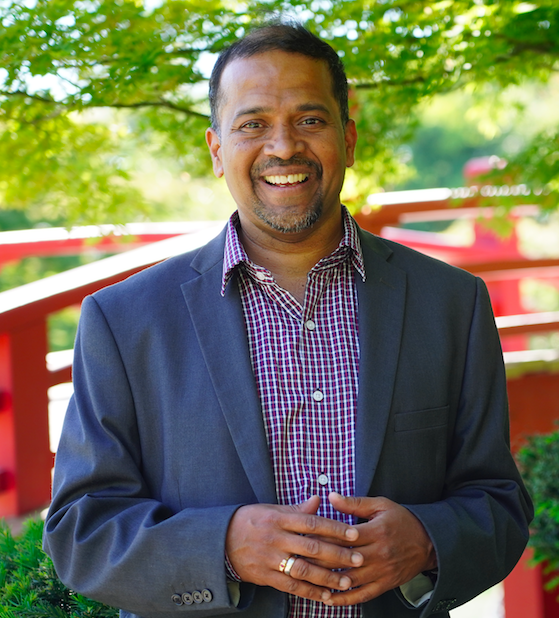
As a regular blogger across many social platforms with a steady increase in the number of followers (I cannot be held responsible for their taste), I am constantly surprised when I meet one of my first degree connections and they comment, “Looks like you haven’t been writing much lately.” To which my arched eyebrow response is, “Not true, I have been writing with greater frequency than ever!” This is met with surprise and they usually respond, “But I didn’t get notified in my feed,” and my repartee is
“Nothing surprising there, an algorithm — #AI anyone? — decides who gets to see what I write”.
Then the conversation goes down the now familiar terrain of incredulity and mild outrage.
Why am I talking about this? The workings of these platforms — it does not matter if it is LinkedIn or Facebook or any of the others — all have similar underlying principles. And what better way to describe this than by using an analogy.
Imagine a classroom with a teacher and students. Let’s assume — I know it might be a stretch but stay with me — that all the students are paying attention to what the teacher is saying and not distracted by the dancing bitmoji on their smartphone. And anytime a student raises their hand to ask a question or make a comment, everyone gets to hear it. Huh! You might say. What’s the big deal?
Let me suggest another scenario. Same classroom, same teacher and students. But, wait there’s a catch. They are all blindfolded. And as in the previous scenario, students regularly ask a question or comment on something.
Weeks pass by with this new blindfold experiment. And then one day the students realize something’s amiss.
At a social event, Sunil asks everyone what they thought of his question in class that day. Except for Amanda, no one knows what he is talking about. Why? Because Amanda is the only one who heard him. As they start discussing this some more, they realize that not everyone has been hearing the same questions or comments, even though they are physically in the same class.
Everyone has heard a unique combination of dialogs.
And they are puzzled. As they should be.
The teacher — has she gone rogue?
And then the mystery is revealed. As part of the blindfolding, each of the students’ ears was surreptitiously embedded with a micro earphone each tuned to a unique frequency. And the classroom had been fitted — in the dark of the night — with as many microphones as students, and each microphone matched exactly to one student’s earphones. And the speaker’s voice only carried forth through the microphones. Only the school principal could control the microphones and depending on which ones he activated only the students whose frequency matched the activated microphones heard the speaker.
Getting the picture? By remote controlling the microphones, the school principal alone was the hidden master orchestrator of the conversation.
But it gets better — worse actually if you are #ethically minded as I am.
The principal also has outside parties, retail stores, propaganda consultants, college counsellors, all of whom can pay to access a headphone that automatically tunes in to the appropriate conversation. For instance, a college counsellor could pay to listen to students who are fretting about their SAT scores and perhaps use that knowledge to target their parents with his services.
Now you must have got the picture.
Would you want to be the principal of such a school? A teacher? How about sending your kids to such a school where they are spied upon?Scandalous, isn’t it?
Well, that is what all our social platforms are.
They are the equivalent of the rogue principal and determines who hears what and when. To my connections out there who think I have gone silent I have not. The principal – in this case LinkedIn – determined that you need not hear me. Or those that see my #TechEthics post but not my #LifePurpose post or vice versa, the platform is turning on and off the microphone that connects to your headset so you are hearing different things. And there are salivating commercial wolves — like the college counsellor — who will bid for the conversations they want to see and hear, and they get tuned into those frequencies unbeknownst to you or me.
There has to be a better way. And there is
It is a project started by an amazing group of individuals who believe in the power of social networking without the surreptitious frequency tuning and conversation-selling traitors.T
It is called open-book.org
And I am joining them as a brand sponsor. Why? Because these committed, open, passionate individuals are on a mission to create a freer, more transparent, and just social network. One that values privacy (yours and mine), transparency (heck, even the code is open source), and security (the founders live and breathe security). One that is ad-free (Oh #YES) and has a dead simple business model to start off (pay for premium services or enjoy the free version) that includes giving back 30 percent of profits to build a better tomorrow through FoundersPledge.com. But wait, there are more innovative revenue models – all built around transparency, sustainability and value. See Joel – the founder’s – post here on that topic.
Join me in this revolution. For the sake of the teachers and the students. And everybody on our connected planet.

